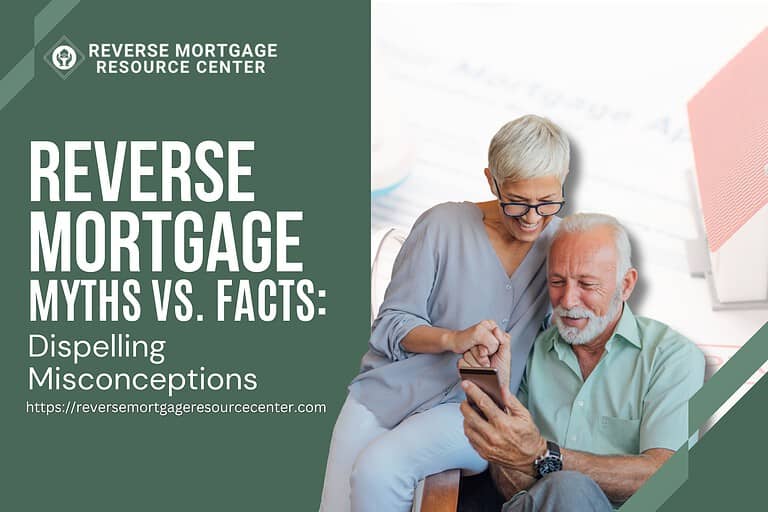Florida Reverse Mortgages: Your Path to Financial Peace
Financial security is a primary issue in the warm state of Florida, where retirees flock to enjoy their golden years. Many seniors in Florida are looking for methods to supplement their retirement income, pay for healthcare, or support their dream trips. The reverse mortgage is one financial option that has grown in favor among Florida’s seniors. This article will go through the ins and outs of Florida reverse mortgages, including how they function, the benefits they provide, and what factors to consider while analyzing this financial alternative.
Understanding Reverse Mortgages
What is a Reverse Mortgage?
A reverse mortgage is a one-of-a-kind financial solution tailored to seniors aged 62 and over. It enables homeowners to convert a portion of their home equity into tax-free funds that may be utilized for various purposes, including paying down current mortgages, managing daily costs, supporting home upgrades, and enjoying retirement activities.
Unlike a traditional mortgage, where homeowners make monthly payments to their lender, with a reverse mortgage, the lender disburses funds to the homeowner. These funds can be made in the form of a single lump sum amount, a line of credit, or monthly installments, giving you financial freedom.
How Does a Reverse Mortgage Work?
The reverse mortgage process is relatively straightforward:
Eligibility: To be eligible for a reverse mortgage in Florida, you must be at least 62 years old, own your house, and reside in it as your principal residence. Your home must also meet specific requirements, such as being a single-family residence or a two-to-four unit property with one unit occupied by the borrower.
Counseling: You must attend a counseling session with an accredited HUD counselor before applying for a reverse mortgage. This session ensures that you completely comprehend the ramifications of a reverse mortgage and gives information to assist you in making an informed decision.
Application: Once educated and prepared, you can apply for a reverse mortgage with a HUD-approved lender. They will assess your financial status and the value of your house to determine the loan amount you qualify for.
Loan Approval: If you meet all of the conditions, your lender will approve your reverse mortgage, and you will receive your funds in the way you choose.
Repayment: When you no longer use the home as your primary residence, sell it, or pass away, the debt becomes due. The debt must be repaid at this stage. Your heirs can sell the house to repay the loan or refinance it to retain the house in the family.
The Advantages of Florida Reverse Mortgages
Reverse mortgages benefit Florida elders, making them an appealing financial tool. Here are some convincing benefits:
Supplement Income
Social Security and savings are insufficient for many retirees to maintain their chosen lifestyle or pay unexpected bills. A reverse mortgage can help bridge the financial gap by providing an additional source of funds to supplement their income.
No Monthly Mortgage Payments
One of the most tempting advantages of a reverse mortgage is that no monthly mortgage payments are necessary. This reduces your financial stress and allows you to enjoy your retirement without worrying about costs.
Flexibility in Fund Disbursement
There are numerous choices on how the loan proceeds can be distributed. You can receive a lump sum, a line of credit, or regular monthly installments, depending on your financial circumstances and aspirations. This adaptability allows you to adjust the loan to your specific needs.
Homeownership Retention
A reverse mortgage lets you keep your house while tapping into its equity. You can stay in the house as long as you like without selling it or moving out.
Tax-Free Proceeds
The monies received from a reverse mortgage are not subject to income tax, providing you with additional financial benefits and enhancing the loan’s overall worth.
FHA Insured
In Florida, most reverse mortgages are Home Equity Conversion Mortgages (HECMs), insured by the Federal Housing Administration (FHA). This government insurance offers borrowers an additional layer of security, assuring that the loan terms are fair and acceptable.
Considerations Before Getting a Reverse Mortgage
While reverse mortgages have numerous advantages, they may not be the best option for everyone. Here are some crucial factors to consider before making a decision:
Loan Costs
Fees and expenditures associated with reverse mortgages include upfront mortgage insurance payments, loan origination fees, closing costs, and service fees. It is critical to understand these fees and how they will affect the loan’s total worth.
Impact on Heirs
If you have heirs planning to receive your house, you must evaluate the implications of a reverse mortgage on their inheritance. When the loan matures, your heirs must decide whether to repay it, often by selling the house or refinancing it. Talk to your loved ones about it and have a solid strategy.
Home Equity Reduction
The equity in your home declines over time as you use a reverse mortgage to access your home equity. Alternative financial solutions may be more appropriate if maintaining home equity for your heirs is a priority.
Home Maintenance and Property Taxes
You are still responsible for house maintenance, property taxes, and homeowners’ insurance, even if you have a reverse mortgage. Failure to meet these responsibilities may result in foreclosure. Make sure you can afford these costs.
Impact on Government Assistance
The proceeds from a reverse mortgage can impact certain government assistance programs, such as Medicaid. To understand any potential ramifications, contacting a financial counselor is critical.
How to Choose a Reputable Lender
Choosing a reliable lender is critical when considering a reverse mortgage in Florida. Here are some pointers to help you make the best decision:
Research Lenders: Look at lenders who provide reverse mortgages in Florida. Look for well-established institutions with a track record of providing great customer service.
Ask for Referrals: Talk to friends, family, or financial advisors who have used reverse mortgages. Their advice can be really useful.
Check for HUD Approval: Check if the lender is approved to issue Home Equity Conversion Mortgages (HECMs) by the U.S. Department of Housing and Urban Development (HUD). HUD-approved lenders must follow tight guidelines.
Compare Rates and Terms: Request quotations from lenders and compare interest rates, fees, and terms. This will assist you in locating the best terms for your scenario.
Read Reviews: Look for online reviews and comments from prior clients to understand the lender’s reputation and customer satisfaction.
REVERSE MORTGAGE RESOURCE CENTER ~LIVE LIFE ON YOUR TERMS~
Our Lending Team has been serving our clients since 2004. We are passionate about serving our clients with integrity to help them achieve their financial goals.







